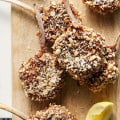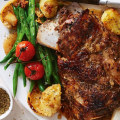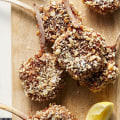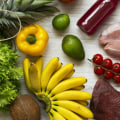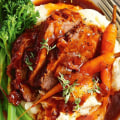For example, France, Ireland and Germany are the main importers of our livestock. All food sold in Australia must meet Australian food standards. We regulate food imports to ensure that food importers import food that is safe and meets these standards. Packaged food shoppers in major cities also demonstrate a strong preference for well-known and established brands that are easily available in Australian retail stores and promoted by word of mouth.
By contrast, under the CHAFTA, Australia faces only a discretionary safeguard for whole milk powder, with a volume triggering the safeguard well above current trade levels and indexed to grow annually. Australian Department of Agriculture and Water Resources - Importing Country Requirements Manual China Customs Ministry of Agriculture China Ministry of Commerce China Ministry of Commerce General Administration of Quality Supervision, Inspection and Quarantine of the People's Republic of China. With the phasing out of tariffs on sheepmeat, ChAFTA positions Australian farmers to better compete with New Zealand, further encouraging trade and increasing profitability. In general, Chinese consumers know Australia well and Australian products are reputed to be natural and manufactured to the highest quality standards, a feature that also appears regularly in the sales and marketing campaigns of other international suppliers.
Mrs. Ardern will host this week an online summit of leaders from Asia-Pacific Economic Cooperation (APEC) countries, including the United States, China and Australia. As a result, Australia is the largest source of wool imported from China, with a market share of 74 percent, ahead of South Africa (8 percent). Australia, which is already one of the leading suppliers of beef imported from China with 21 percent of the import market and with an excellent reputation for quality, will be ideally placed to capitalize on this growing demand, as ChAFTA offers a real competitive advantage over almost every other large one beef exporters.
In the past, the absence of a bilateral FTA with China meant that Australian producers and exporters faced significant tariffs on agricultural products and were at a competitive disadvantage compared to countries that had an FTA with China, including New Zealand, Chile and ASEAN. For all Australian customs matters, including import requirements and procedures, advance rulings, inquiries about tariff classifications and rules of origin. Sunday's report confirms fears that U.S. beef exports are permanently driving Australian exporters out of the market.
In addition to the FTA negotiations, Australia already has quarantine access protocols for the export to China of many horticultural products, and will be able to immediately take advantage of tariff reductions for a range of products including citrus fruits, grapes, almonds, macadamias, mangoes and some cherries. We work with representatives from the food and beverage import industry, analysts and government agencies to consider practical and strategic issues affecting food imports. In accordance with all of Australia's FTAs, Australia will eliminate remaining tariffs on imports of agricultural and processed food from China. Any food or food ingredient or component that had a history of importing before the new Food Safety Act should be allowed in, even if there is no Chinese standard.
.


